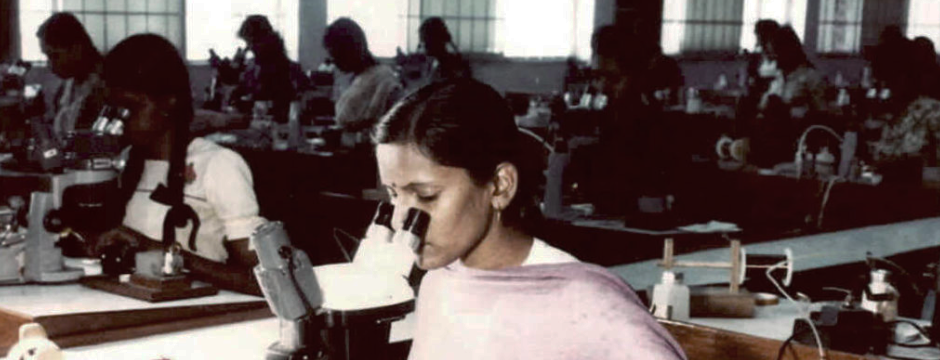
Quality and Success Through Progressive Workplace Empowerment
When we talk with OEM customer prospects about our world-class EMS facilities, the initial feedback we often receive is a wariness about India’s dubious quality standards. This stems from India’s long-held cultural reputation for chalta hai–loosely translated as “it’s okay” or settling for the status quo–often interpreted as inattention to detail. For nearly four decades, the Tandon Group has worked tirelessly to dispel that stereotype, providing top quality products at reasonable costs.
When M.L. Tandon returned to India in 1967 after completing his MBA at Santa Clara University, he spent six years as an engineering manager at IBM India, where he observed firsthand the day-to-day corporate efficiency and flawless quality which positioned “Big Blue” atop the global computer market. When he envisioned eventually starting his own electronics manufacturing company, he knew striving to meet those benchmarks would set his company far ahead of the rest of the pack.
When Tandon’s original Mumbai facility opened for business in 1978, the top priority would be establishing a pervasive company culture that would represent the absolute antithesis of chalta hai. As his workforce rapidly expanded, M.L.’s favorite slogan on the production floor was “Chalta hai, nehi!”–or, chalta hai is not okay! Quality meant constantly trying to improve upon the status quo. And the best way to inspire such continual progress was to instill a sense of empowerment in his workers–that this was more than just a 9-to-5 job, but their company. And the company’s success would reflect favorably upon their character as well.
Do it Differently, Doing It Better: Every Worker Matters
Tandon’s IBM model revered the value of the individual, rejecting the rigid British-inspired corporate structure that dominated most Indian companies. There were no separate lunchrooms for executives, managers, and employees. From the bottom upward, every role was recognized for its contribution to the overall organization.
When a line employee fell short in their tasks, it became their manager’s responsibility to improve communication and clear up misunderstandings rather than “crack the whip” with harsh discipline. M.L. Tandon was among the first top executives of an Indian company to maintain an open-door policy, allowing any employee to share ideas or voice concerns directly to him. Such progressive business practices were far ahead of their time in Indian culture–and they quickly brought about a noticeably different workplace.
True Commitment vs. “On the Clock”
From the Tandon factory, product shipments for international destinations had to be dropped off at the shipper’s facility no later than 4:00 pm every business day. M.L. observed his employees–thanks to their new-found empowerment–began skipping their breaks and lunchtimes in order to meet their daily shipping deadlines. Where other companies would literally drop everything and go home at quitting time, the Tandon workforce’s company pride and strong work ethic focused on doing whatever was necessary to get the job done right. At Tandon, chalta hai became little more than a quaint anachronism.
As the Tandon Group expanded into other electronics manufacturing, including power supplies, motors, and their landmark floppy drives, to their current state-of-the-art EMS facilities at Syrma Technology, M.L. Tandon’s original“Chalta hai, nehi!” philosophy has remained the cornerstone of their success.





